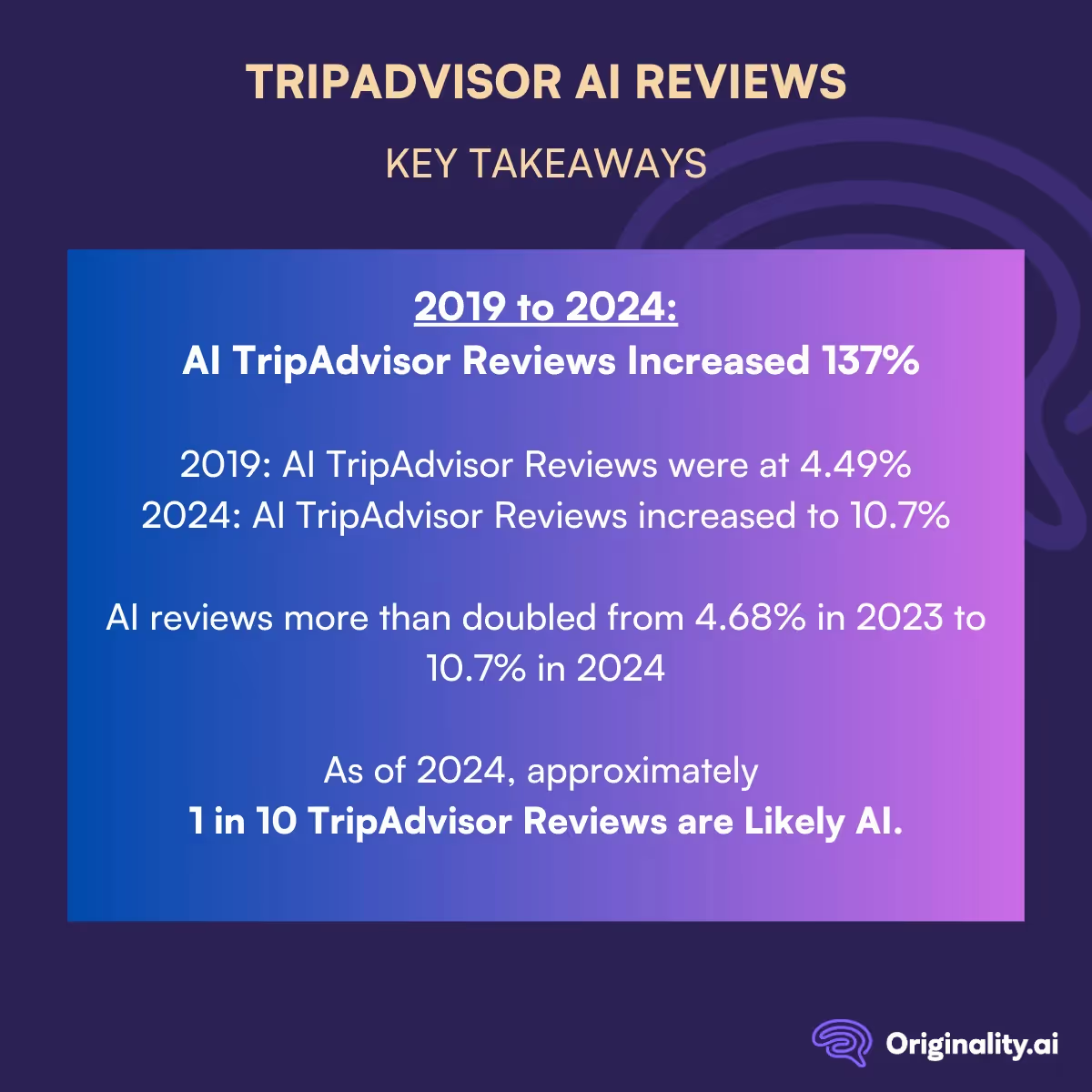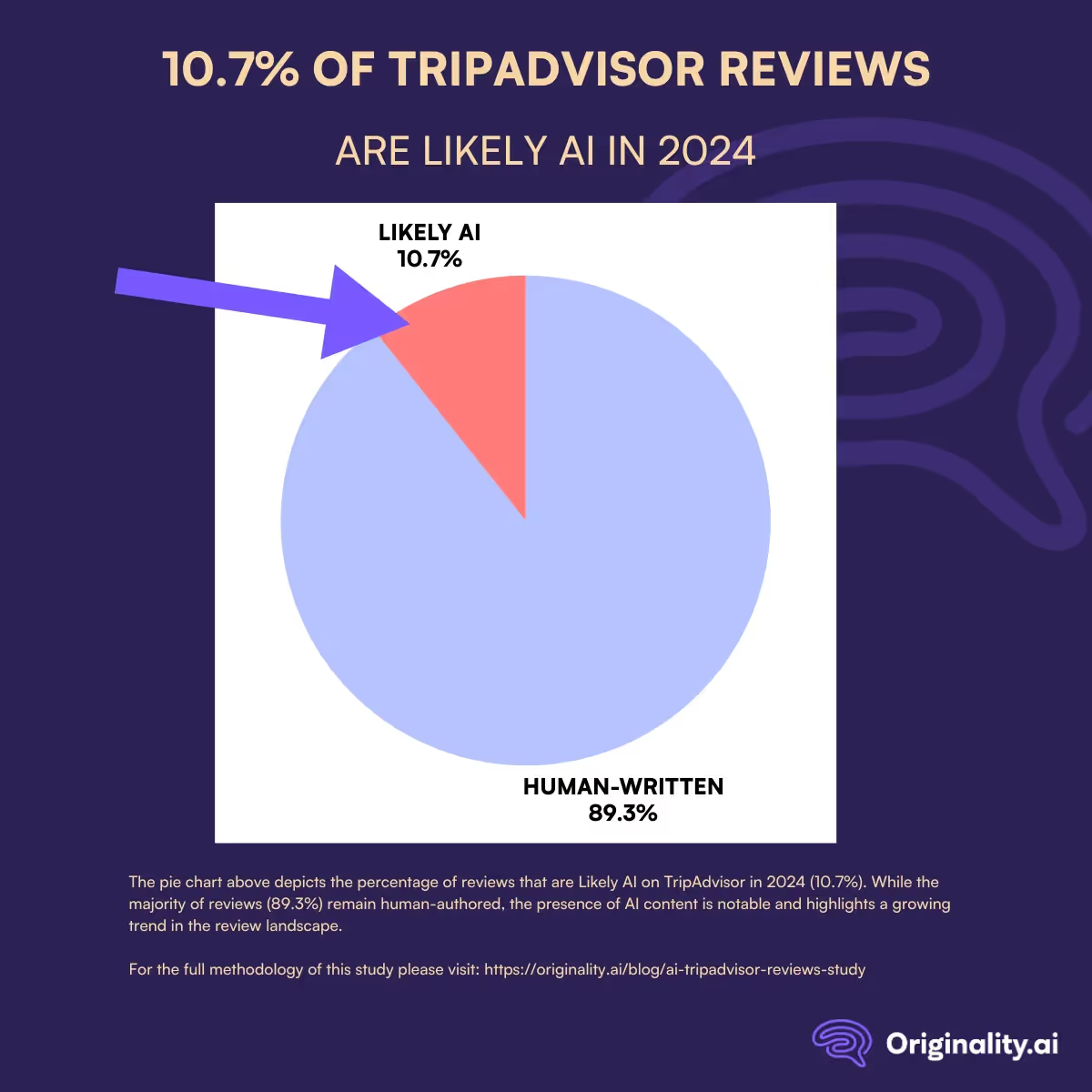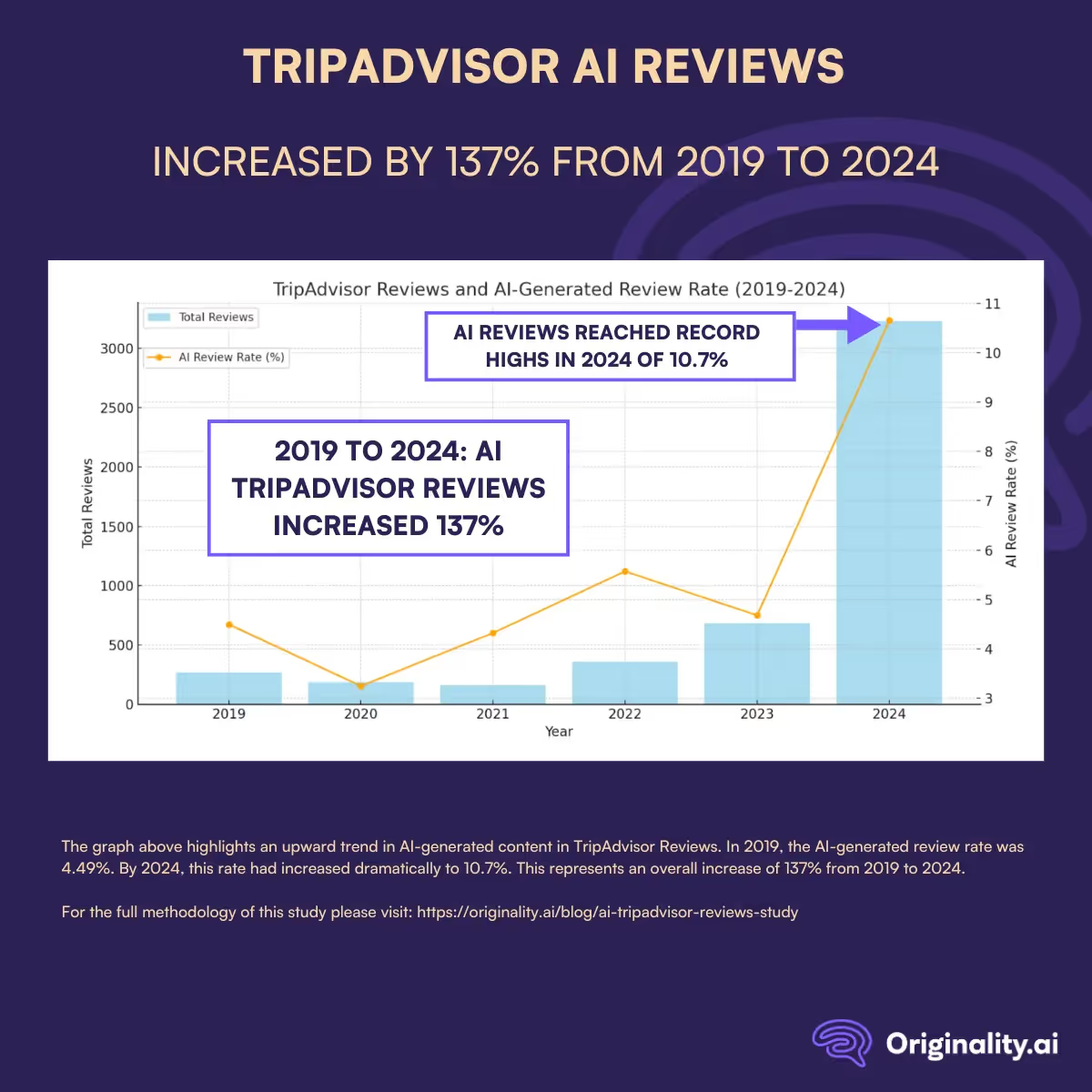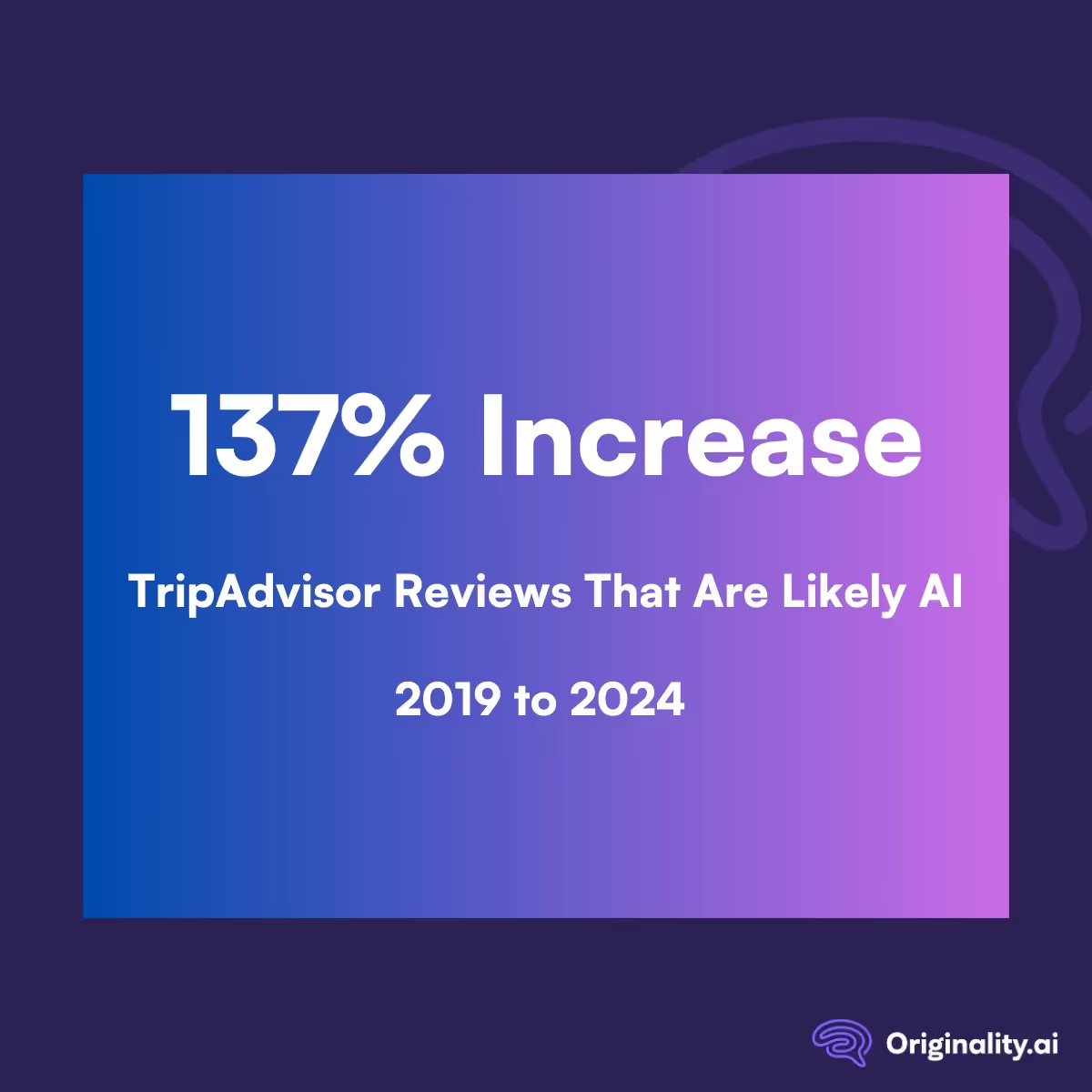When you’re thinking about planning a vacation, what’s one of the first things that you do? Check reviews for the best places to go for your vacation!
But what if what you were reading wasn’t an honest assessment of a real customer experience but an AI-generated review designed to convince you to purchase?
Our most recent study takes a deeper look at TripAdvisor reviews and shines a light on how many of those ‘real-world’ reviews might not be what they seem.
This analysis aims to identify AI-generated review trends and the impact they may have on consumers and businesses.


The analysis of AI-generated hotel reviews on TripAdvisor for 2024 reveals that 10.7% of the reviews were flagged as AI-generated.
While the majority of reviews at 89.3% remain human-authored, the presence of AI-generated content is notable and highlights a growing trend in the review landscape.
This shift is likely driven by advancements in AI tools capable of generating realistic content.
Further, this makes it increasingly challenging for platforms and users to distinguish between authentic and machine-generated reviews, considering that studies have found humans struggle to identify AI.

The analysis of TripAdvisor reviews from 2019 to 2024 highlights a clear upward trend in AI-generated content.
This substantial rise indicates the growing reliance on AI for creating automated reviews, particularly in industries like travel where feedback is critical to consumer decision-making.

For instance, the AI rate reached 5.57% in 2022, suggesting a peak in AI adoption or advancements in detection technologies.
Then, there was a slight dip to 4.68% in 2023, which might reflect temporary changes in content generation trends or industry shifts.
By 2024, AI rates continued to rise reaching a record high of 10.7% in 2024.
This underscores the sustained growth of AI's role in generating user content.
The 10.7% of AI-generated reviews in 2024 raises important questions regarding trust and reliability in user-generated content.
Reviews play a critical role in influencing customer decisions, and an increasing proportion of AI-generated reviews could undermine their credibility.
Hotels and platforms may need to implement stronger AI detection systems to ensure transparency and maintain user confidence.
Additionally, the findings suggest that businesses and review platforms should explore strategies to mitigate the impact of AI-generated reviews, such as incorporating verification methods or educating consumers on identifying suspicious content.
This analysis serves as a timely reminder of the evolving landscape of online reviews and the need for proactive solutions to address AI’s role in shaping user perceptions.
As a consumer, it is vital that you understand where the content you are consuming comes from to ensure you are reading unbiased, real-world experiences. Reviews often play a large role in how customers make decisions, which is why AI content detection and verification methods are essential.
If that trust were to diminish in any way, it could not only have an impact on TripAdvisor as a business but also on the decision-making process for consumers in general.
This growth trend underscores the increasing prevalence of AI-generated reviews and its potential implications for consumer trust.
For platforms like TripAdvisor, ensuring transparency about AI-generated content will be crucial in maintaining the credibility and authenticity of reviews, which are often the cornerstone of consumer decision-making in the travel industry.
Are you unsure if a review you’re reading is human-written or AI-generated? Use the Originality.ai AI detector to find out.
We used the TripAdvisor Content API to gather structured reviews data. The process ensured diverse and reliable data across locations and categories.
Location and Category Selection: We selected 20 major North American cities (e.g., New York, Los Angeles, Chicago) and five key business categories (hotels, restaurants, attractions, regions, things to do) for each city.
Search Query Execution: We used the API's location search endpoint to identify relevant places in each city-category combination, with parameters like location name, category, and language.
Review Retrieval: Reviews were fetched using location IDs, retrieving up to 5 reviews per query. We incremented the offset to gather more reviews, extracting review text, rating, date, and metadata.
Error Handling and Rate Limiting: We monitored API responses for errors and ensured a 1-second delay between requests to comply with rate limits.
Data Aggregation and Storage: Reviews were collected in real-time, stopping once 10,000 reviews were reached. The data was saved to a CSV file for further analysis.

According to the 2024 study, “Students are using large language models and AI detectors can often detect their use,” Originality.ai is highly effective at identifying AI-generated and AI-modified text.